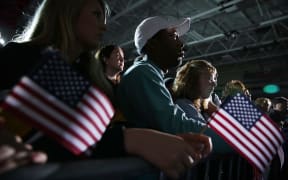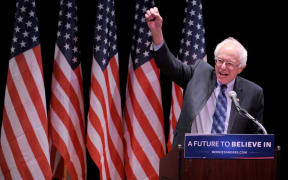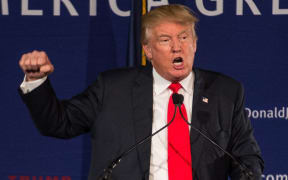The voters of Iowa will go to caucus today, marking the first formal step in the process to elect the Democratic and Republican candidates for the presidency of the United States of America.
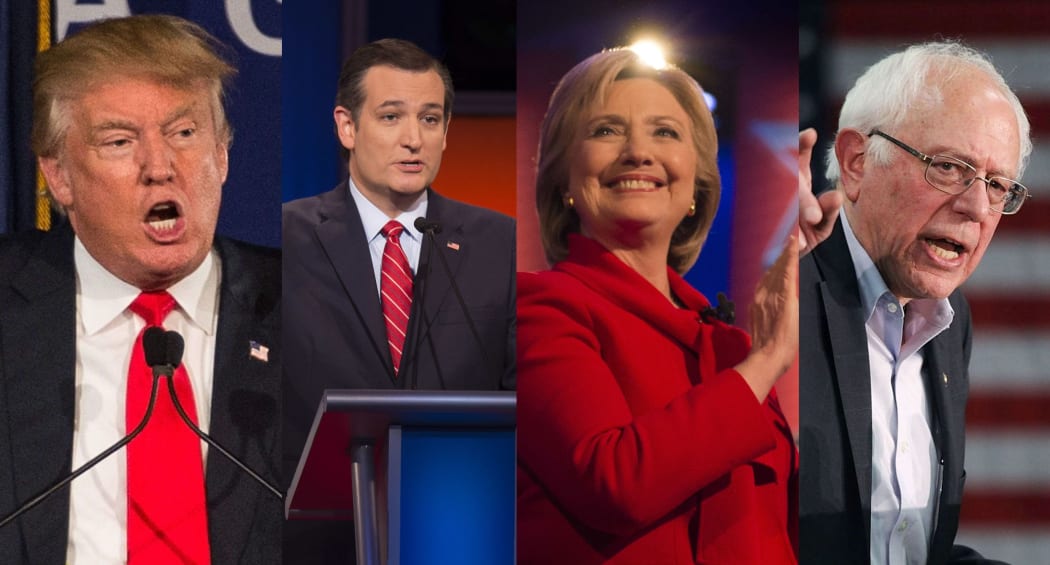
Republican hopefuls Donald Trump and Ted Cruz, and Democrats Hillary Clinton and Bernie Sanders. Photo: AFP
Presidential hopefuls have been campaigning hard in Iowa, with a win there seen as a significant boost to a party nomination.
Polls show Republican Donald Trump in a tight battle with Ted Cruz, but both are well ahead of the others. On the Democratic side, front-runner Hillary Clinton is hoping to fend off a strong challenge in Iowa from Bernie Sanders.
As the intensity of the contest builds, so too does the rhetoric - including comments, from Republican candidates in particular, about Muslims and other racial minorities.
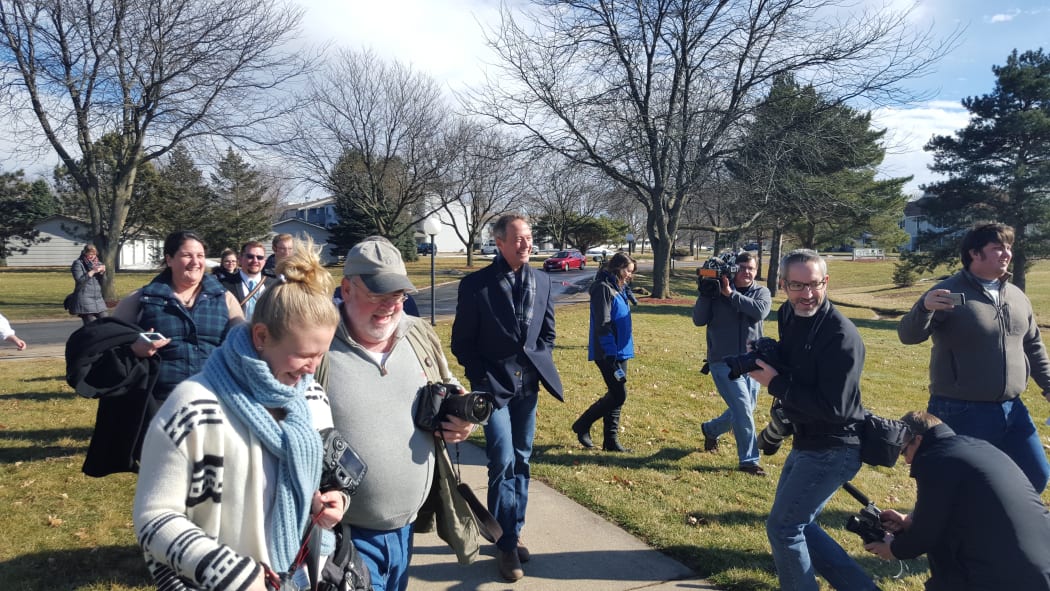
Democratic candidate Martin O'Malley heads out door-knocking in Des Moines. Photo: RNZ / Jane Patterson
Over the weekend, Democratic candidate Martin O'Malley was out and about in suburban Des Moines, appealing to Iowans to back him as he trailed well behind Ms Clinton and Mr Sanders in the polls.
During the walkabout, he was asked about the approach to race relations being taken by some on the Republican side.
"Well, look the most important office in our country is the office of citizen, and every citizen has a responsibility to push back against racist appeals and overly fascist appeals like the ones we're hearing from Donald Trump," he said.
Mr O'Malley said all candidates in both parties had a responsibility to push back against that sort of "poisonous language".
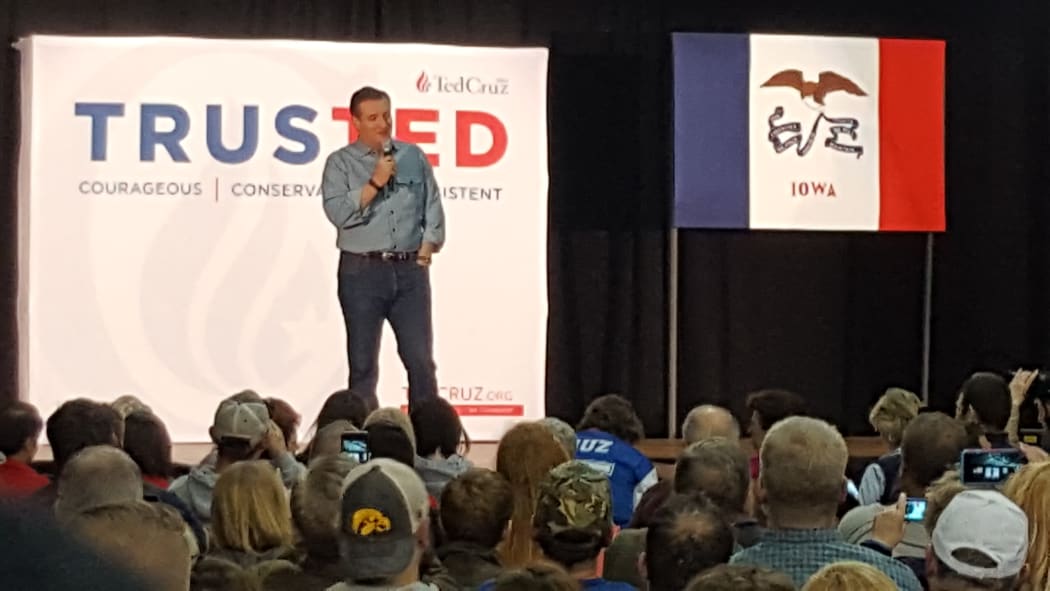
Republican candidate Ted Cruz at a rally in Des Moines on the eve of caucus day in Iowa. Photo: RNZ / Jane Patterson
Republican candidate Ted Cruz held the last rally of the night before caucus at the Iowa Fair Showgrounds. One of his supporters, Josh Cobbs, said he agreed with the proposal to crack down on illegal immigrants.
"I believe that coming across our borders are folks that we don't know, OK, I've seen videos where people will put an Osama Bin Laden mask on, go down to the Rio Grande River, cross it, and they come back in and nobody's in sight.
"So the national feel is we don't know who's coming in, and we know for fact in San Bernardino, what happened in Paris, that there are terrorists coming in."
'Something to unite us all'
Marlu Arbaca, a 23-year-old Latina who supported Mr Sanders, said the racial rhetoric had galvanised some of her friends and family.
"In a way, I think it's united a lot of people - and there are younger people who are not necessarily eligible to participate in the caucuses but, because they've been disrespected and their families have been disrespected, it's then something to unite us all.
"And again people who were not formerly interested in politics are now paying attention."
The way some of the politicians were talking fed into people's fear, Ms Arbaca said.
"For example with ISIS [Islamic State], everyone's really concerned about potentially inviting refugees into this country that could pose some danger, but we know that nothing has ever happened - Iowa's accepted refugees since the '80s and it's never been a problem."
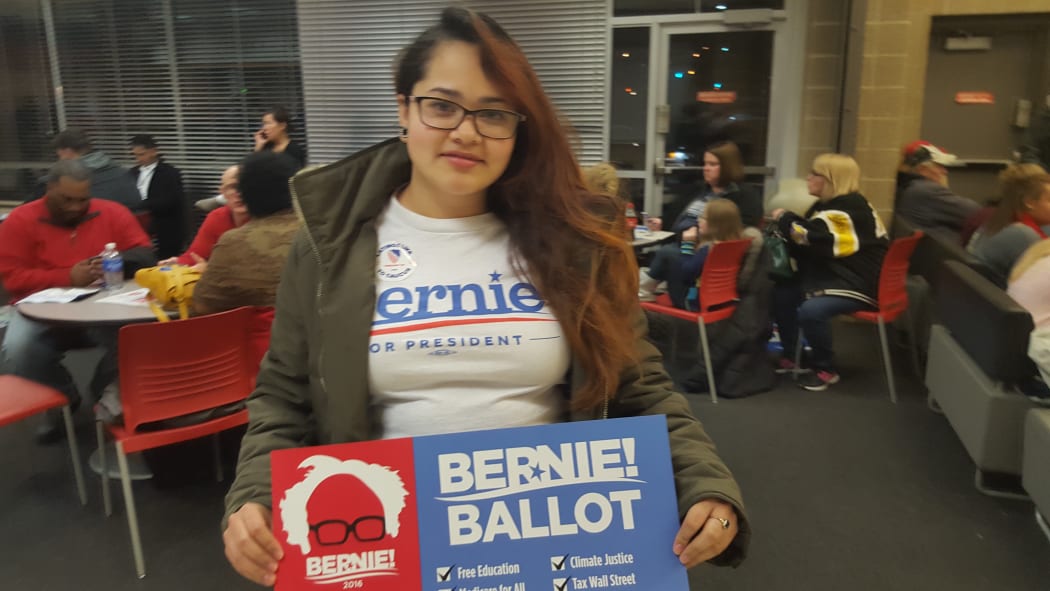
Marlu Arbaca, 23, said some of her friends and family had come together against certain politicians' racial rhetoric. Photo: RNZ / Jane Patterson
A 30-year-old Muslim woman, Nadia Igram, said she was encouraged that not everyone was buying into politicians' fear-mongering
"They want to appeal to people's inner, darkest fears, which [is] sad and quite pathetic honestly that they have to resort to something like that.
"But the response to those ideas - that Muslims should be banned from this country or, you know, Mexicans always send rapists and murderers - it's been really encouraging to see the vast majority of people in this country and around the world actually stand up against that rhetoric."
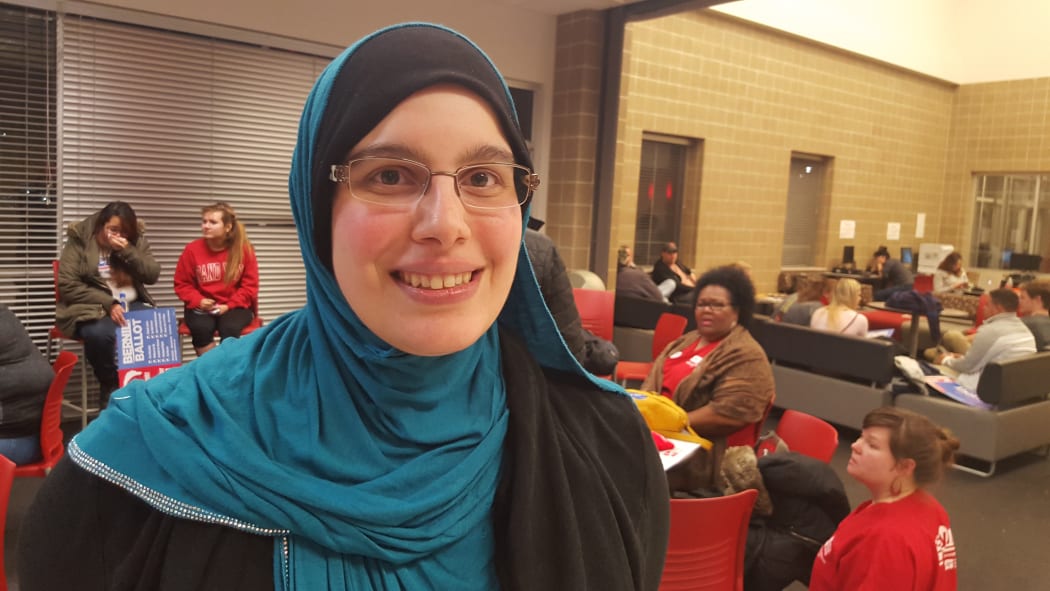
Nadia Igram, 30, said some politicians were playing on some voters' darkest fears. Photo: RNZ / Jane Patterson
Shirley Kappas, originally from Texas, who spoke to RNZ News at San Francisco Airport, said she agreed with much of what Mr Trump had to say. There was a lot of resentment over race relations, she said.
"I think because things have gotten so much worse and some blacks, as there are some whites, have this sense of entitlement that now they're more emboldened. Like the "black lives matter" [movement], well, some politician, I think it was Bernie Sanders, I'm sure it was a prominent one, said all lives matter - well, he ended up having to apologise.
"And I'm like, you have to apologise for saying all lives matter, so only black lives matter?
"And it's gotten so... so now I find myself, and I'm 66 now, and the least bigoted person you'd ever know, I find myself resenting it and then that makes me feel bad about myself and I don't like that."
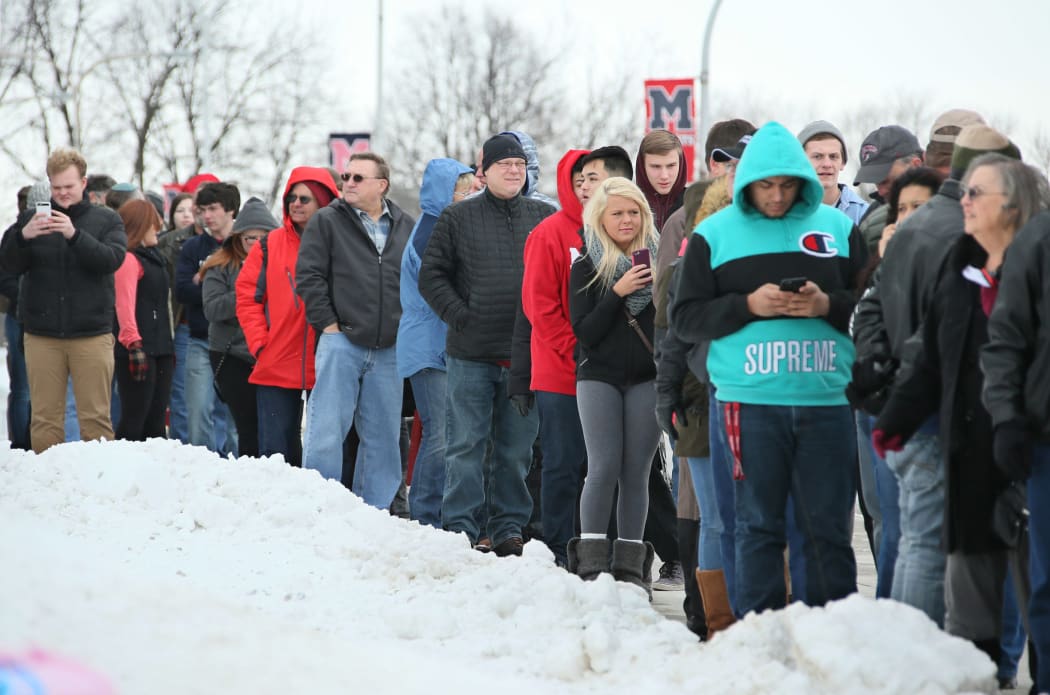
Supporters queue for Mr Trump in Marshalltown, Iowa, on 26 January. Photo: Reiri Kurihara / Yomiuri / The Yomiuri Shimbun
Mrs Kappas said all of this gave a platform to politicians like Mr Trump.
"Because people are so angry at all this political correctness; like on some campuses, you can't eat sushi because that's racist, you can't dress up for Halloween because it's racist - there's silly things, and it's just getting worse and worse.
"People are sick of it... They're angry with politicians, saying they're going to do things, saying they're going to do what the people want and then they go to Washington and they don't, they do what big business wants and they feather their own nests.
"People are furious - the everyday person, the everyday working person is mad and angry and Trump is hitting that anger, and that's the phenomenon of Trump."
Iowans will go to caucus, under a different system for the Democrats and for the Republicans, about 8pm local time (3pm NZT). There, they will start casting their votes for the party delegates who will eventually select the two final candidates for the presidency.
Jane Patterson's trip to the United States was funded by a grant from the US Department of State.

